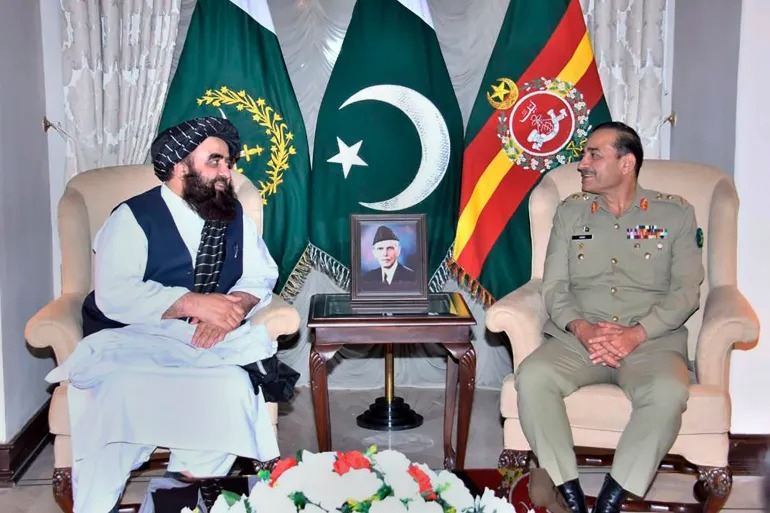Two years since the Taliban’s ascendancy in Afghanistan, the once-close relationship between the Taliban and Pakistan is showing alarming signs of deterioration. While the Afghan Taliban marked their two-year rule over Afghanistan on August 15, the rapport with their historical ally and neighboring country, Pakistan, has witnessed increasing strain due to a surge in armed attacks. The backdrop of these deteriorating ties paints a picture of escalating tensions, as both nations grapple with complex security challenges.
Taliban’s Long-Standing Ties with Pakistan Under Strain
The intricate bond that existed between the Afghan Taliban and Pakistan is now facing a serious challenge. Over time, these neighbors had shared strategic interests, but now, the ties have hit rough waters. Islamabad is holding Kabul accountable for a series of lethal assaults in Pakistan’s tribal region adjoining Afghanistan. The most recent attack, a suicide bombing in Bajaur district in July, attributed to an ISIS affiliate, inflicted a devastating toll of 54 casualties. Pakistani officials are asserting that the ruling Taliban administration has not done enough to curb the infiltration of armed groups across the porous border.
Blame Game Escalates Amid Mounting Security Concerns
The blame game between the two nations is intensifying, encapsulating the swift decline in their relationship. Pakistan is grappling with a mounting wave of attacks on its law enforcement personnel and citizens, particularly in the Khyber Pakhtunkhwa province. Despite the Afghan Taliban condemning the Bajaur attack, they are rebutting Pakistan’s accusations. This verbal exchange highlights the rapid erosion of the once-friendly connection. The recent security incident in Pakistan has reignited the blame on Afghans, while Afghanistan’s stance remains clear – it disapproves of attacks on Pakistan but cannot assume responsibility for thwarting attacks within Pakistan’s borders.
Tensions Deepen as Attacks Persist and Diplomacy Stalls
The tensions between the two nations are spiraling as Pakistan grapples with an increasing onslaught of attacks in 2023. The Tehreek-e-Taliban Pakistan (TTP), an outlawed group also known as the Pakistan Taliban, has claimed responsibility for a significant number of these attacks. Although the TTP shares ideological alignment with the Afghan Taliban, its independent operations have fueled skepticism of a possible reconciliation. Despite diplomatic overtures, violence remains unchecked, further complicating the situation. With Afghan Taliban’s denial of involvement in these attacks, prospects of mending ties seem bleak.
As Pakistan contends with these challenges, it is exploring renewed engagement with the United States to address regional security threats. A recent meeting between General Michael Erik Kurilla, leader of the United States Central Command, and Pakistan’s army chief underscores the gravity of the situation. This collaborative approach signals Pakistan’s determination to navigate the evolving security landscape, even as the complexities persist.
In conclusion, the strained relationship between the Taliban and Pakistan has evolved into a complex web of accusations and security concerns. As the two nations grapple with mounting challenges within their territories, the path to reconciliation appears fraught with obstacles. The steady deterioration of these once-intertwined ties paints a picture of uncertainty in an already volatile region.















